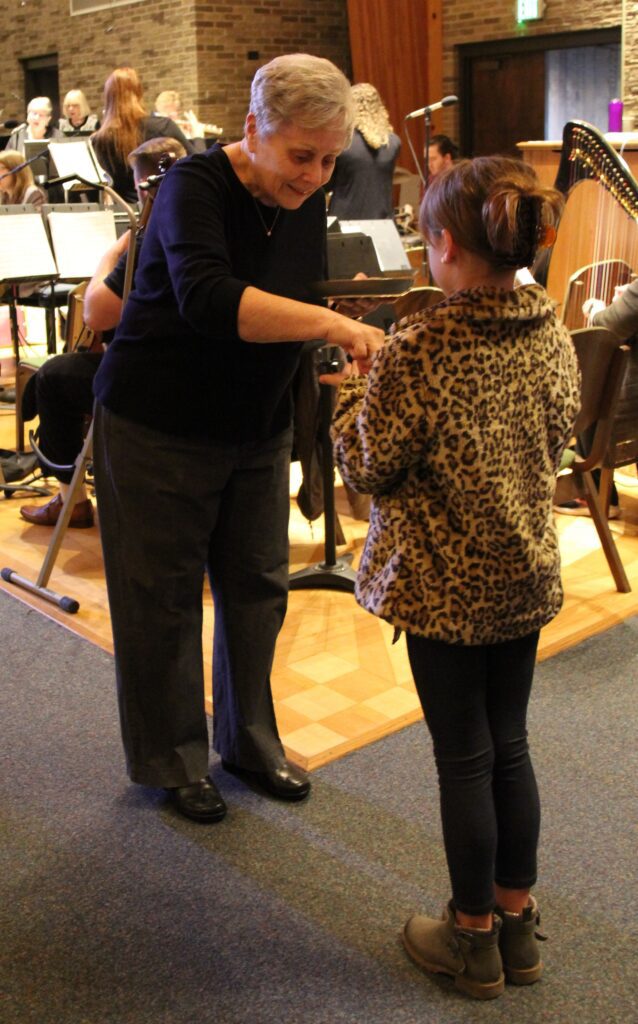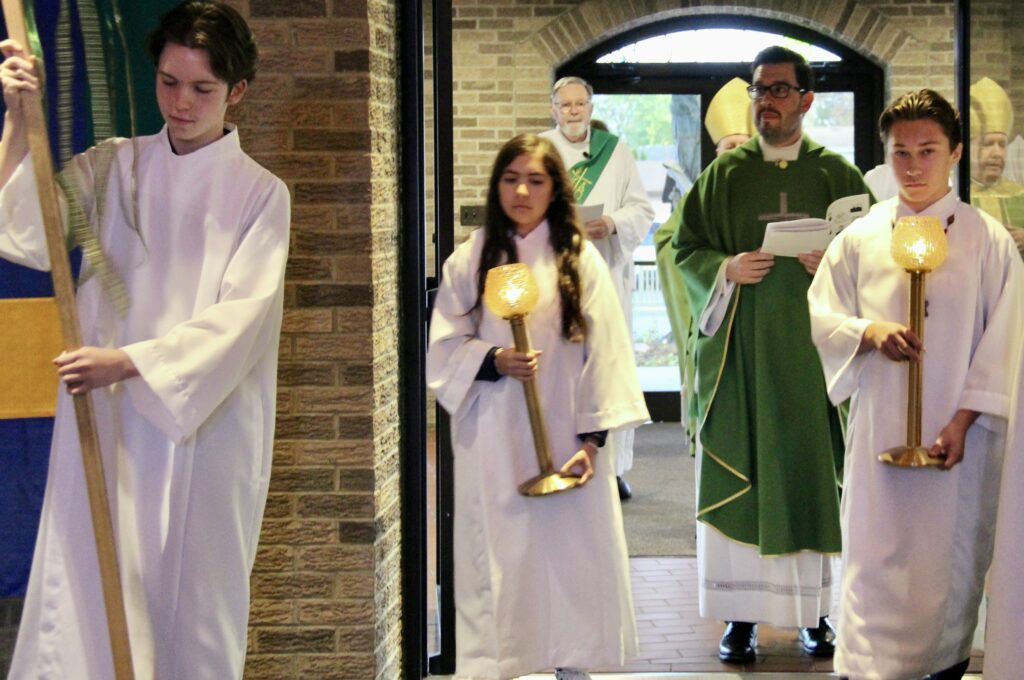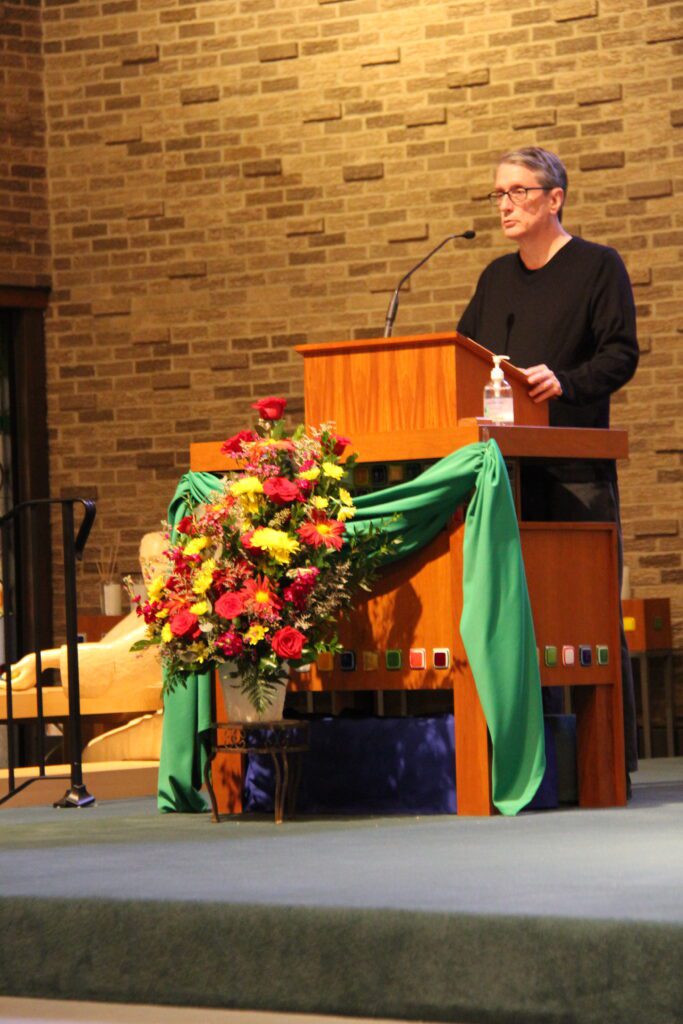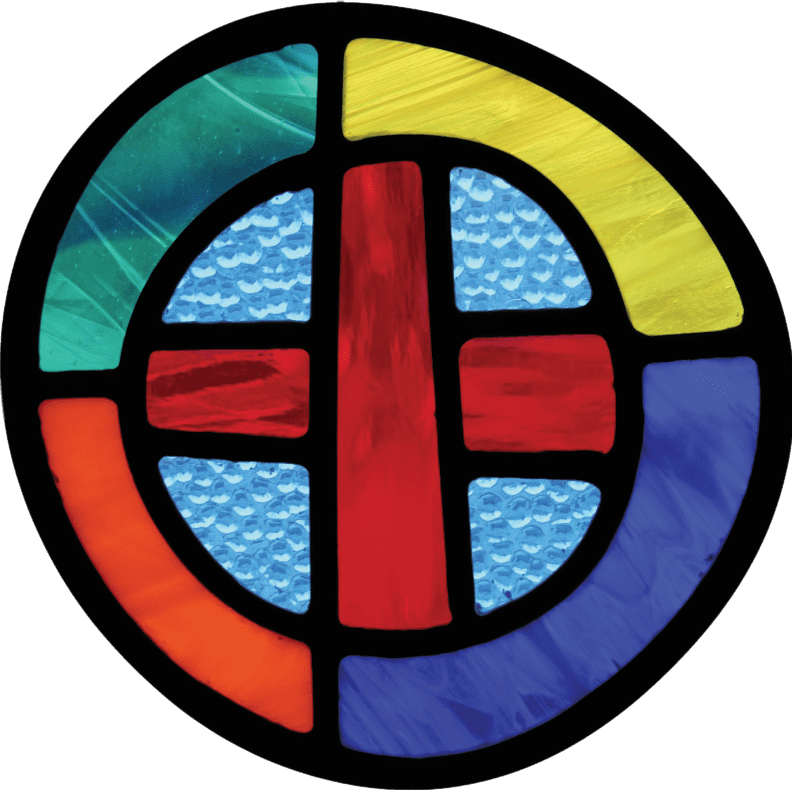
The General Instruction of the Roman Missal states that liturgy is the “primary and indispensable source from which the faithful are to derive the true Christian Spirit.”
It is through our Baptism that we are called to worship and service. Liturgies don’t just “happen”; they need planning. The goal is to focus on the full range of our parish’s liturgical life and to plan the celebrations so they inspire active participation – body, mind, and spirit – of the entire faith community of Saint Maria Goretti. Many elements go into our liturgical celebrations – short and long range planning, education, dialog, environment, music, other pertinent ministries, logistics, etc. We encourage participation from the community.
Eucharistic Minister: The invitation to serve as a Eucharistic minister is a privilege and a responsibility. The minister’s reverence for what they carry can be seen and felt by the whole assembly. The number of communicants at Mass determines the number of ministers of communion needed.
The third edition of the Guide for Extraordinary Ministers reminds us, “the Eucharistic minister inspires our belief in the real presence of Christ, fosters our sense of unity and reconciliation, and helps us profess our belief, or “Amen” to the mystery we receive.
There are training sessions at least annually or as necessary.

Altar Server: Serving at liturgy is a joyful privilege. Altar Servers enhance the quality of liturgical celebrations by taking specific roles in liturgical processions and by serving the priest at Mass and other liturgies. Servers stand close to the altar, hold our holy cups, plates and bowls, wear the robe of baptism, and hold the book of prayers. This is a great way for young people to learn more about and understand the Mass. Boys and girls from 4th grade and higher are eligible to become Altar Servers. There are training sessions at least annually or as necessary.

Lector: The Constitution of the Sacred Liturgy states, “Sacred Scripture is of the greatest importance in the celebration of the liturgy.”
The Lector’s role takes place during the Liturgy of the Word. At the weekend liturgy, the Lector reads a passage from the Old Testament and a reading from the New Testament. The Lector reads the assigned readings for the Sunday. The Lectionary has three cycles: Year A, Year B, and Year C.
The Lector will receive a workbook annually. The Lector should be well prepared for his or her assigned readings. The Lector wants to help the assembly focus on the Word of God. Therefore, the Lector should not change any words in the Lectionary.
For more information or training for any of these ministries, please contact Deacon Dan Ratliff at DeaconDan@smgdyer.org.
